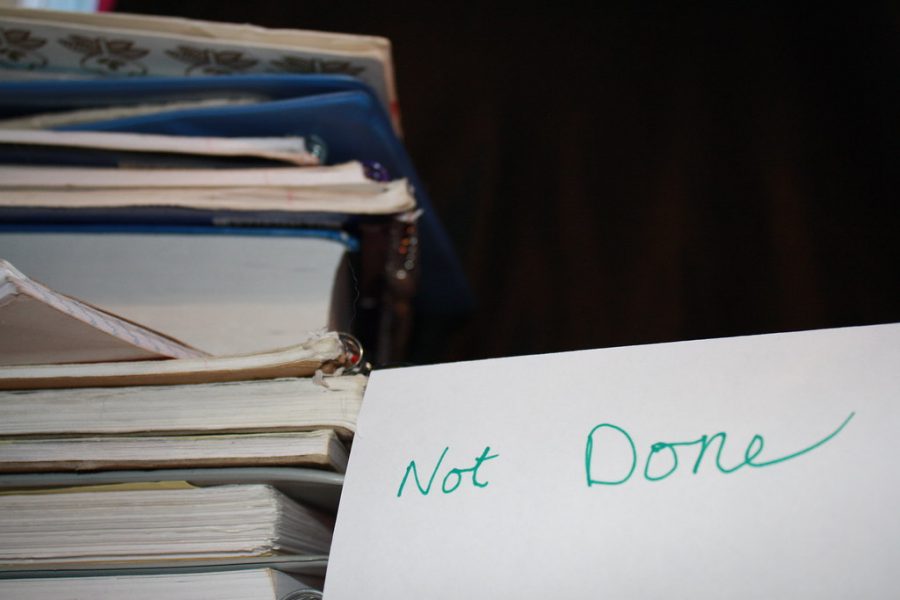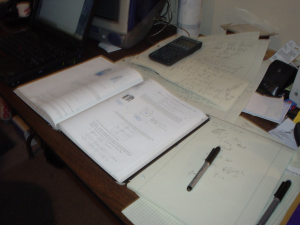Procrastination has benefits, despite bad rap
Photo used with permission from Google Commons
Books build up: As a procrastinator it is hard to stay on top of your work.
Procrastination is the intentional delay in starting or finishing a task, despite being aware of the negative consequences it may incur. A majority of people associate procrastination with the bad reputation it holds, however, there are bright sides of procrastination.
People that argue against procrastination raise the point that it ultimately creates a negative impact on the work that a person completes. They contend that the lack of time limits the amount of effort someone is able to put into completing a task. In addition, those opposed to the idea of procrastination argue that it causes a great amount of stress for students. Procrastinators develop a stress response that makes them feel nervous or anxious because they believe that their task will not be completed on time. “The stress and panic that procrastination causes gives it a bad reputation,” author Prapti Sarkar said.
Although it causes stress for some, others believe that it can reduce anxiety. Procrastinators tend to set things aside that they find uncomfortable or difficult. To reduce the anxiety, people take their time and mentally prepare to complete the task, then start it when they are ready. In addition to reducing stress, procrastination can allow for an increase in creativity and ultimately room for higher quality work and possible improvements. When a student sets their task aside, they do not get as stuck, because their thoughts continue to turn in their mind as new ideas and in a more improved form. “Procrastinating gives your ideas time to percolate; it allows you to sit down and tackle the task after your subconscious has chewed it over. The result just might be a better outcome,” author Frank Partnoy said.
Procrastination also reduces the need for unnecessary efforts and allows room for possible changes to any tasks to be made. There is always a chance for the task to have a sudden extension, so it is helpful to wait a little longer before beginning tasks just in case. Setting tasks aside allows availability for someone to do a variety of activities they might rather enjoy. Procrastination allows you “a greater degree of freedom of choice” with your focus. Procrastinators will most likely choose the intriguing activity rather than the tedious activity if they have the right amount of time post-activity to fully complete the other task before it’s due. Furthermore, procrastination can lead to prioritization and breed efficiency. Procrastinators have an enhanced ability to prioritize their actions. They make sure they have enough time to do the important tasks, and leave the unnecessary tasks for after to help save time and feel productive.
Procrastination works the most effectively when the procrastinator has a plan. Once all of the tasks are assigned, it’s a good habit to review all that was given and plan out when each task will be completed. That way they won’t have to be actively doing it, but they are thinking about everything over and over again in their mind.
Your donation will support the student journalists of Thomas S. Wootton High School. Your contribution will allow us to purchase equipment and cover our annual website hosting costs.










